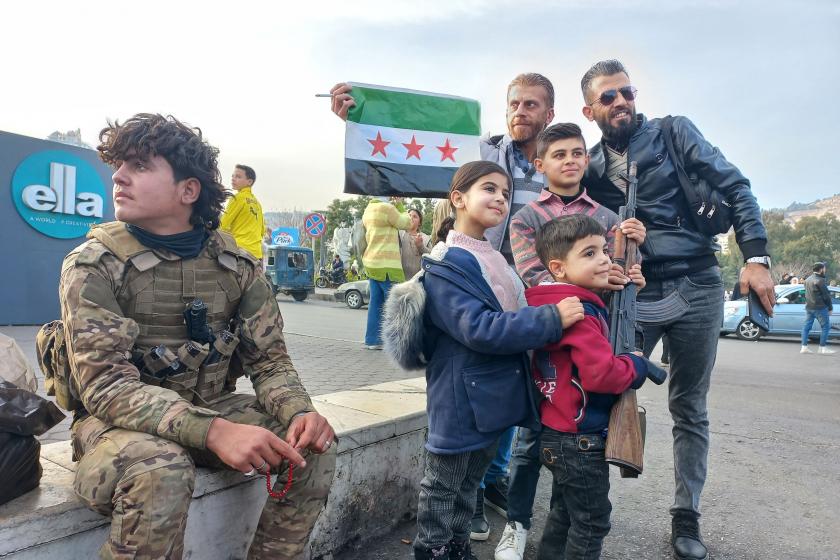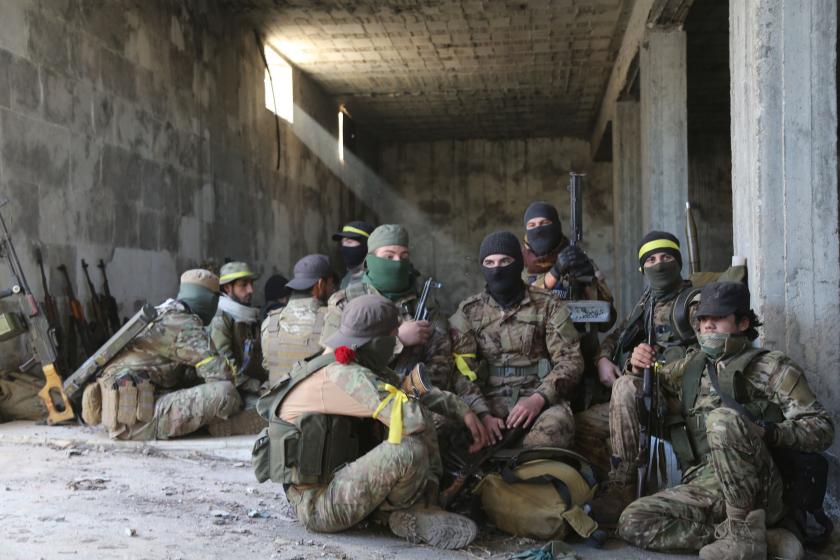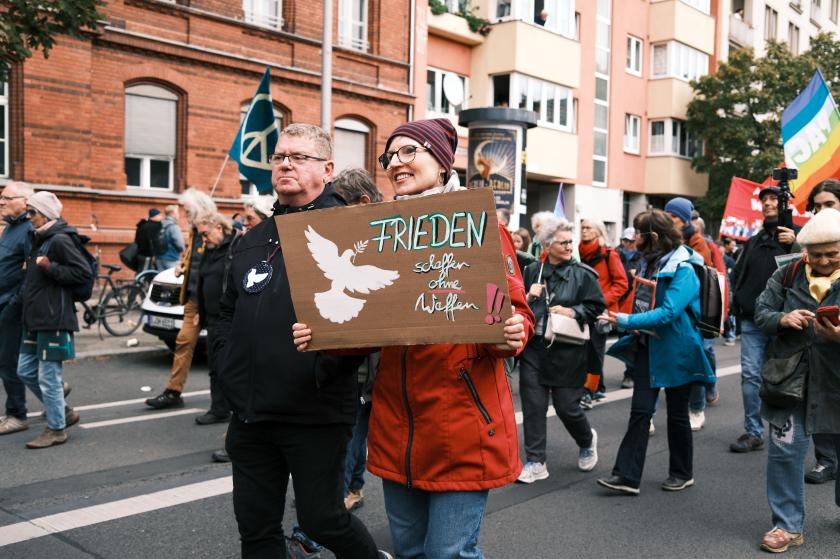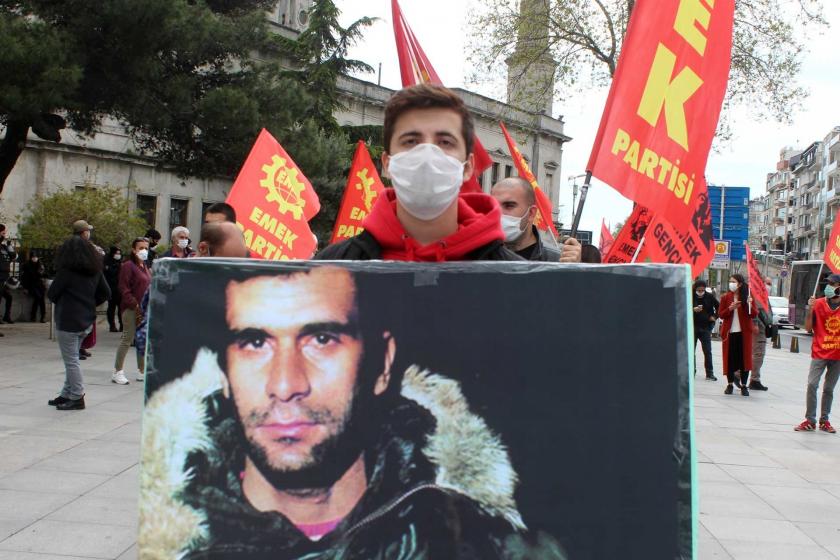17 July 2019 11:40
Lawyer and Evrensel columnist Kamil Tekin Sürek, presents a synopsis of the process preceding the 15 July coup attempt and what has transpired in the three years since then.
 Kamil Tekin Sürek
Kamil Tekin Sürek
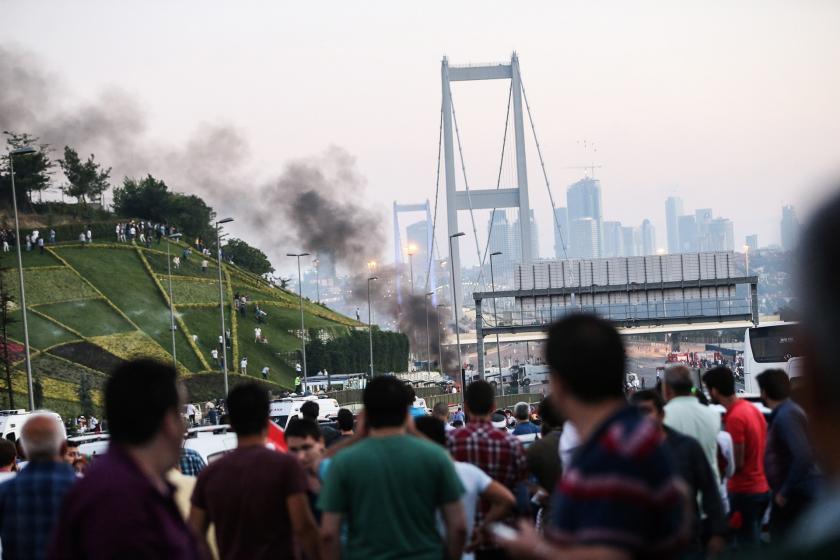
There was a coup attempt in Turkey in 15 July 2016 (Photograph: Elif Öztürk/AA)
Three years has passed since the 15 July 2016 coup attempt in Turkey. The coup attempt caused a political reshaping and radical changes took place in the Turkish system. As for the most important of these changes, it was the transition from a parliamentary system to a presidential one. New ‘alliances’ has been formed. Both the legislature and executive has been tied to ‘one-man’. The ownership of the media changed… So how was this point reached? And what happened in the aftermath of 15 July?
How was the 15 July process reached?
The road to 15 July began to be paved in the aftermath of 7 June 2015 elections. The AKP (Adalet ve Kalkınma Partisi – Justice and Development Party) had not been able to gain enough number of members of parliament to form a government on its own. HDP (Halkları Demokratik Partisi – Peoples’ Democratic Party), as the third largest party in the parliament, had become the “key party.” The options for government, AKP-CHP, CHP-MHP (which HDP would begrudgingly support), were being debated. The EU and some big bosses were promoting the first option. President Erdoğan first gave the task of forming a government to Ahmet Davutoğlu, the leader of the party with the most MPs. According to custom, in the eventuality where Davutoğlu was not able to form a government in the matter of 8 to 10 days, the task of forming a government should have been given to CHP (Cumhuriyet Halk Partisi – Republican People’s Party). After stalling CHP and the public opinion enough, AKP announced that it will not form a government with CHP, and Erdoğan, without giving the task of forming a government to CHP and HDP and contravening the Constitution, decided a rerun of the elections on 1st November. This was also the process when the secret AKP-MHP alliance was established. After the decision to the rerun the elections, the days of terror began. Destroyed cities... ISIS massacres etc. The 1 November elections resulted in AKP being able to form a government with the support of MHP. The results of the 7 June elections and the reality of HDP led the AKP and MHP to focus on the presidential system. In the presidential system, the executive was going to change between the two parties and there was no longer going to be a need for small “key” parties. In any case, the majority of the right-wing parties in the parliament could be secured.
Erdoğan’s reaction to “Academics for Peace” initiative was especially harsh; this initiative was undersigned first by 128 academics but then surged in the support it received, against the violation of human rights during curfews declared and security operations taking place in Southeast, particularly in Sur, Cizre and Silopi.
At the beginning of 2016, one of the most important questions for the AKP-MHP alliance was the expulsion of proponents of cleric Fettullah Güven from the army, police, judiciary and bureaucracy and their economic disempowerment. Lists were drawn. Preparations for court cases were underway. In the meantime, ministries wrote to their subunits, demanding directors to start enquiries about staff, examine their social media accounts and to administratively eradicate “harmful elements” opposing the government. In May 2016, with the support also of CHP, the immunity of members of parliament, in a retrospective move contravening the Constitution, was removed and the process of arrest of HDP MPs begun.
What happened on 15 July and what was its result?
In the early hours of the night of 15 July, the military coup attempt begun. This coup was unlike any of the coups taking place since the 1960 Coup. Government representatives, the peak of the army, the MIT (Milli İstihbarat Ajansı – National Intelligence Agency) were stating that “we were not informed of the coup” but the President, the prime minister, the ministers were in ‘unknown’ locations. The coup was communicated to MIT at 14.00, the MIT Director had shared this report only with the Chief of General Staff and had not informed the President or Prime Minister (and was still in his position). The Chief of General Staff had heard of the coup attempt from MIT at around 16.00 and had not ordered flights to be stopped or vehicles to stop leaving their units (and for a long time he remained in position, then he became a minister). A few hours after the coup started, soldiers who were not Güvenists took a stance against the coup, thousands of people took to the streets and in a short space of time, the proponents of the coup were rendered ineffective. The Judges and Prosecutors High Council (HSYK), at a midnight meeting, removed the previously judicially listed Güvenists. The President Erdoğan remarked that the coup is “a blessing from God for us.” For, if there were no such intervention, the removal of Güvenists from bureacracy was going to be all the more difficult, with judicial processes likely to last years for each removal, reinstament of positions etc likely to become possible. And now its name changed from “congregationists” or “Güvenists” into FETÖ/PYD.
What was the experienced after the declaration of Martial Law?
The Martial Law, OHAL, was declared in 20 July. Many political circles were to state later that the real coup took place on 20 July.
With OHAL KHK statutory decrees (KHK – Kanun Hükmünde Kararname) more than a hundred thousand civil servants were removed from post. Those removed were not comprised only of FETÖ members. Academics for Peace, socialists, Kurds, Alevis were being “eradicated” from the bureaucracy and academy. The KHKs did not only cause a liquidation of “objectionable” civil servants; hundreds of associations, charities, newspapers, journals, publishing houses, radio and television channels were shut down. Their properties were confiscated. The positions of those eradicated “harmful elements” were to be filled with AKP and MHP members.
With OHAL KHKs, not only regulation pertaining to the coup was made. Many other legal arrangements were also conducted through KHK statutory decrees in contravention to the Constitution. Even the nationalisation of some of contract worker posts were carried out through these OHAL statutory decrees. However, contracts workers who have been employed for years, with the elimination brought about with “security inquiries” issued with KHKs, while pleasantly expecting to be regularised also lost their jobs. Then, the “security inquiry” set off with contract workers, began to be a pain for those beginning employment or even those who have been employed for years. Even those who had a distant relative against whom a KHK decree was served, those who had a police registration due to political reasons, even if it was years ago, were not admitted to employment. People were sacked because of this.
HDP MPs have been arrested. The director, writer and lawyers of the Cumhuriyet newspaper has been arrested. Legal cases against the Academics for Peace were opened.
The number of those detained and sentenced in prisons increased from around a hundred thousand to two hundred thousand. Around 150 of these were journalists.
What happened in the run up to the process of drawing the Constitution?
Gradually the AKP-MHP Coalition made it a habit to violate the Constitution and the law. The President far exceeds his powers. The one-man regime has been put into de facto effect. Now it is the turn to draw the Constitution of the one-man regime. A presidential system, the like of which is seen little around the world in some Middle Eastern, Asian and African countries, which is authoritative yet not responsible and to which, the judiciary, executive and legislature is tied, has been established. Objections to lawlessness during the Constitution referendum has not been taken into account. All elections and referendum post-7 June had become questionable.
How is the Presidential System conceived today?
They purged the Doğan Medya group. They captured 95 percent of written and visual media. In such conditions, they wanted to reinforce the one-man regime by bringing forward the Presidential and Parliamentary elections. They wanted to stop the newly established İYİ Party (Good Party) which has recently left MHP from participating in the elections and hold an election which could weaken HDP whereby they could establish a parliament of three and half parties comprised of the great AKP-MHP majority. They utilised all the opportunities of the media and the state. The Supreme Electoral Council (Yüksek Seçim Kurulu) clearly violated the law in favour of the government. Despite this, once again, they were elected only by a whisker and a myriad of claims of irregularity. Without even a year passing, in the oppressive local municipal elections taking place in the most antidemocratic of conditions, they lost the City Councils of cities such as İstanbul, Ankara, Adana and Antalya. With the second year still uncomplete, “the one-man regime” became the subject of discussion. Suggestions for “revision” and “changes” have been forthcoming from even the party of government.
What state are the international relations in?
In the meantime, the process underwent in the last three years, increasingly isolated the AKP government around the world. It has been caught in quagmire in its Syrian policy. The plot has thickened with the addition of S-400s and Eastern Mediterranean recently to the Syrian policies.
Many journalist and politicians are making interesting claims about 15 July. For now, it is not possible to debate these claims very openly. People are under the threat of being tried and sentenced. But the state of not being able to talk about it cannot continue endlessly. To be sure, time will come when the events of the last three years and the run up to it will be openly debated and written about. Then the truth will be seen by all more clearly.
NOTES…
In the aftermath of 15 July, the “Democracy and Martyrs Rally” which took place in Istanbul’s Yenikapı Rally Arena on 7 August with President Erdoğan’s appeal was a hint of the birth of a new situation in Turkish politics. Subject to attention was the political alignment of Erdoğan and MHP leader Devlet Bahçeli in the context of Yenikapı Spirit. The constitutional referendum taking place on 16 April 2017 for a system change resulted in 51.2% votes in favour to 48.8% against. While controversies around electoral irregularities were not resolved, Erdoğan’s attitude to the results was his statement that “what is done is done.”According to the referendum, the next election of the Grand National Assembly and for presidency was going to take place together in 3 November 2019, however, Bahçeli, the MHP leader, made another unexpected move. The elections were brought forward one and a half years. Gaining 52.6% of the votes in the first round, Tayyip Erdoğan, was elected the president. Following the 15 July coup attempt, 15,242 people throughout the OHAL Martial Law and 2,138 after it, amounting to some 17,380 people in total at least, have been removed from the Turkish Armed Forces.Immediately after the elections, Hulusi Akar, the Chief of General Staff was appointed the Minister for National Defence. The General Staff itself has been subordinated to the Minister for National Defence.People took to the streets on the day of 15 July against the coup attempt. 248 people lost their lives.More than 4,500 judge and prosecutors were suspended from their posts on the grounds of being “FETÖ” members immediately after 15 July.One of the important ramifications of the 15 July has been the removal from their public service posts of more 130 thousand people with KHK statutory decrees, with no legal judgements against them or recourse to any explanation or hearing.
